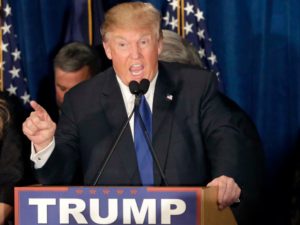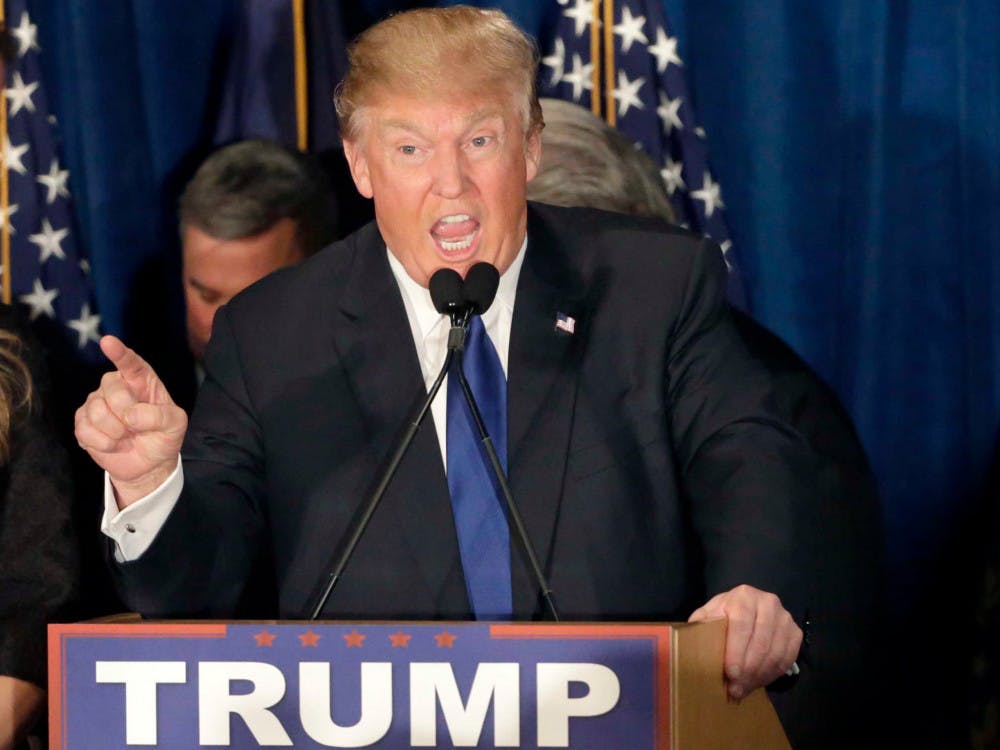This article was one of the submissions for The Signal’s Fall 2016 opinion writing contest.
By Lia Lumauig
This past spring, I completed my capstone research project for my Russian studies major — a task I was anxious to begin. I decided to conduct a discourse analysis of Russian political leaders, which led me to break down speech transcripts and investigate their significance within the appropriate context. In the four months I worked on this, my capstone adviser consistently asked this question every time I reached a conclusion: If so, then what?
This is a question that pushed me to go deeper than just proving my thesis. It meant that I had to convince the reader why he or she should care about my conclusions. It is also a question that I have kept in the back of my mind as I follow this year’s election cycle, a historic one that has generated so much buzz, especially among young voters.
If so, then what? Why are a large bulk of the 75 million millennials in America — now outnumbering the Baby Boomers — much more involved in today’s politics than, say, in 2008, when we elected our first black president? Millennials identify as Democrat over Republican by almost twice the margin — why is that?
I will not speak for all millennials, but as a woman-of-color immigrant, I can tell you that the answer is pretty clear for a lot of people. When a candidate uses fear-mongering rhetoric to appeal not to conservative politics but to extreme hatred, then the problem speaks for itself.
Though hateful language is serious, the problem is much deeper than social issues. The trouble is, at its core, in the polarization of politics.

Multiple researchers have noted that this is the most divisive election this country has seen in decades — if so, then what? For many people, issues are no longer subject to open discussion — if so, then what? For government officials and candidates, the demands for narrowly-defined policies are, at best, remarkably intense and, at worst, non-negotiable — if so, then what?
What this election cycle has shown us is that the divides of this country are now more rigid than ever, limiting us to think about issues and policies not only as zero-sum — which is dangerous enough — but more so as battle arenas. As voters, we are indirectly thrown into taking a side, while spewing fire at the opposing one. We rush to one corner of the field, instead of meeting in the middle. We don’t negotiate or compromise — it’s all or nothing.
And sure, many of us feel that some issues are simple, no-brainers. I, for one, believe that building a giant wall along America’s southern border is not only bad politics, but outwardly obnoxious. While some have disagreed with me, the chances of my opinion changing is far slimmer than the possibility of the Mexican government paying for this wall.
If we get into a habit of treating politics in strict black-or-white terms, we refuse to acknowledge the multifaceted aspects of what make a democracy function well: constructive criticism, engaging debates and respect for opposition.
Truth be told, the most contested issues among politicians, such as the economy, world affairs and social topics, cannot be productively discussed with extremism on either side. These areas need to be approached with collective reasoning and bipartisan consultation. I cannot imagine the consequences if our president won’t even allow such a platform to exist.
When I cast my vote this fall, I am doing so in the belief that it will support a candidate that is not only ready to lead this country with careful hands, but also with the intention of working with those they disagree with, instead of terrorizing them. The leader of the most powerful country in the world should welcome the differences of our populations, celebrate diversity and refrain from treating fear as a commodity in exchange for popular support.
The United States spends billions of dollars promoting democracy abroad, but after this election, will it be able to say that it supports democratic values within its own borders? If its population elects a business expert that uses divisive language to amass votes instead of constructive policy recommendations, what kind of direction will the U.S. set out into? A hateful one.
In the words of Senator Susan Collins, a Republican from Maine, “Donald Trump does not reflect historical Republican values nor the inclusive approach to governing that is critical to healing the divisions in our country.”
Unlike Trump, I believe we are better united. Let us not push one another on either side of a battle arena. Instead, let’s keep learning to meet each other in the middle.







